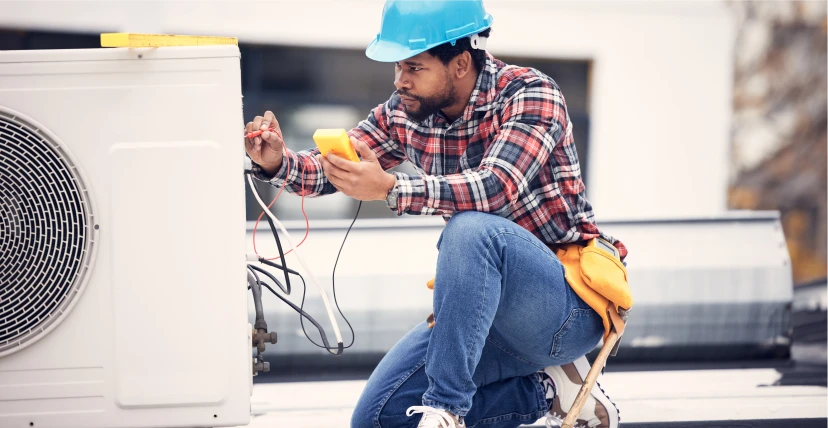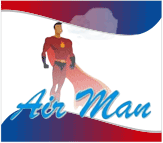AC problems can be a frustrating experience, especially in a scorching summer. But understanding the common issues and learning to troubleshoot them can save you time and money.
When your AC troubles you in the heat, don’t panic! And also, don’t be afraid to call for professional help.
There are a few steps to make sure the AC problems are solved efficiently. The first thing you should do is to take a moment to discover if the problem is minor, and if you can easily troubleshoot it. However, one should note that with such an important machine in your home, you would want to make sure to hand the problems over to professionals to be sure any problems are being solved appropriately. Either way, it is always good to do some research to find the best of what you need, and then call a professional if need be.
Here are some common air conditioner problems and tips to troubleshoot them.

Ways To Troubleshoot Common AC Problems
There are several minor air conditioning (AC) systems problems you troubleshoot a few before calling a technician:
- Insufficient Cooling: If your AC is not providing adequate cooling, it could be due to a dirty air filter, blocked vents, or a malfunctioning compressor.
Troubleshooting help –
- Check if the air filter is dirty and clean or replace it if necessary.
- Ensure registers and vents are open and clear.
- Make sure the outdoor condenser unit is not blocked by debris or vegetation.
- Check whether the thermostat is set to the suitable mode and temperature.
- Noisy Operation: Unusual noises coming from the AC unit, such as grinding, rattling, or squealing sounds, may indicate problems with the fan motor, belts, or other components that require attention.
Troubleshooting help –
- Listen for the noise source and try to identify the component causing it.
- If there is any loose screw or bolt, fix it.
- Check the fan motor and blades for damage or misalignment.
- If you suspect a problem with the belts, contact a professional technician.
- Frequent Cycling: If your AC frequently turns on and off in short cycles, it could be a sign of an improperly sized unit, a malfunctioning thermostat, or a refrigerant leak.
Troubleshooting help –
- Examine whether the thermostat functions correctly and whether the desired temperature is set.
- Ensure proper airflow by cleaning or replacing the dirty air filter.
- Check for any refrigerant leaks and contact a professional if necessary.
- Water Leaks: If you notice water pooling around the indoor unit or dripping from it, it could be caused by a clogged condensate drain line, a malfunctioning condensate pump, or frozen evaporator coils.
Troubleshooting help –
- Check the condensate drain line for clogs and clear it if needed.
- Ensure that the condensate pump (if present) is working correctly.
- Check for ice buildup on the evaporator coils, which could indicate a refrigerant or airflow problem.
- Foul Odors: Unpleasant odors emanating from the AC system could indicate mold or mildew growth inside the unit or ductwork, or it could be a sign of a burnt-out wire or insulation.
Troubleshooting help –
- Clean or replace the air filter to eliminate any odors caused by trapped debris.
- If the smell persists, contact a professional to inspect for mold, mildew, or electrical issues.
- Weak Airflow: Insufficient airflow from the vents could be caused by a clogged air filter, blocked ducts, or issues with the blower motor.
Troubleshooting help –
- Check and clean the air filter if it is dirty or replace it if necessary.
- Open and clear the obstructed vents and registers, if any.
- Inspect the blower motor for any issues and contact a professional.
- Electrical Problems: AC units may experience electrical issues, such as tripped circuit breakers, blown fuses, or faulty wiring connections, which can lead to the system not working correctly or not turning on.
Troubleshooting help –
- Check if a circuit breaker has tripped or a fuse has blown, and reset or replace them if necessary.
- Check if any wire is loose or damaged. If found, contact an electrician.
- Frozen Evaporator Coils: When the evaporator coils freeze, it can result in reduced or no cooling. This issue can be caused by restricted airflow, low refrigerant levels, or problems with the blower motor.
Troubleshooting help –
- Check and replace the dirty air filter.
- Ensure proper airflow by ensuring all vents and registers are open and unobstructed.
- If the issue persists, contact a professional to inspect and address the problem.
It is always recommended to seek help from Professional AC Repair Technicians for AC troubleshooting and repairs if you lack proper knowledge about your AC unit.
Contact Us Anytime for Quick and Effective AC Repairs
Don’t let a broken AC system leave you sweltering in the heat. Get professional AC repair services from Air Man, LLC professionals just a phone call away.
Our highly skilled technicians will quickly identify the problem and provide effective repairs, restoring optimal cooling to your home. Say goodbye to discomfort and Call Us Today to schedule your repair service.
